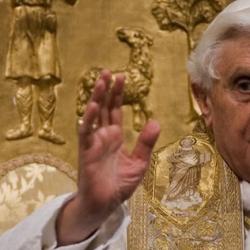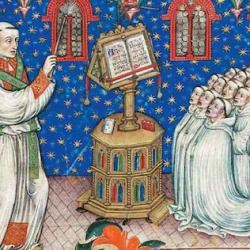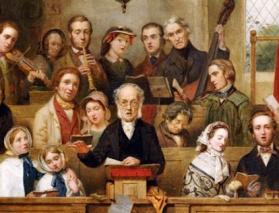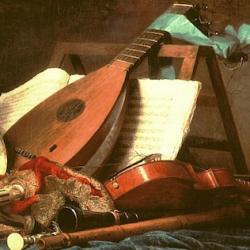An Alex Ross New Yorker review of several recent books on Beethoven stresses the mark he left not only “on all subsequent composers” but on “entire institutions. The professional orchestra arose, in large measure, as a vehicle for the incessant performance of Beethoven’s symphonies. The art of conducting emerged in his wake. The modern piano bears the imprint of his demand for a more resonant and flexible instrument.”
He was largely responsible, Ross claims, for the creation of a musical canon: “In the course of the nineteenth century, dead composers began to crowd out the living on concert programs, and a canon of masterpieces materialized, with Beethoven front and center. As the scholar William Weber has established, this fetishizing of the past can be tracked with mathematical precision, as a rising line on a graph: in Leipzig, the percentage of works by deceased composers went from eleven per cent in 1782 to seventy-six per cent in 1870. Weber sees an 1807 Leipzig performance of Beethoven’s Third Symphony, the titanic, turbulent ‘Eroica,’ as a turning point: the work was brought back a week later, ‘by demand,’ taking a place of honor at the end of the program. Likewise, a critic wrote of the Second Symphony, ‘It demands to be played again, and yet again, by even the most accomplished orchestra.’”
Ross doesn’t belittle earlier composed, but argues that with Beethoven repeated listening becomes “addictive, irresistible. No composer labors so hard to stave off boredom, to occupy the mind of one who might be hearing or playing a particular piece for the tenth or the hundredth time.”
And so we can perhaps credit Beethoven with the creation of, if not the technology, at least of the felt need for the iPod.















